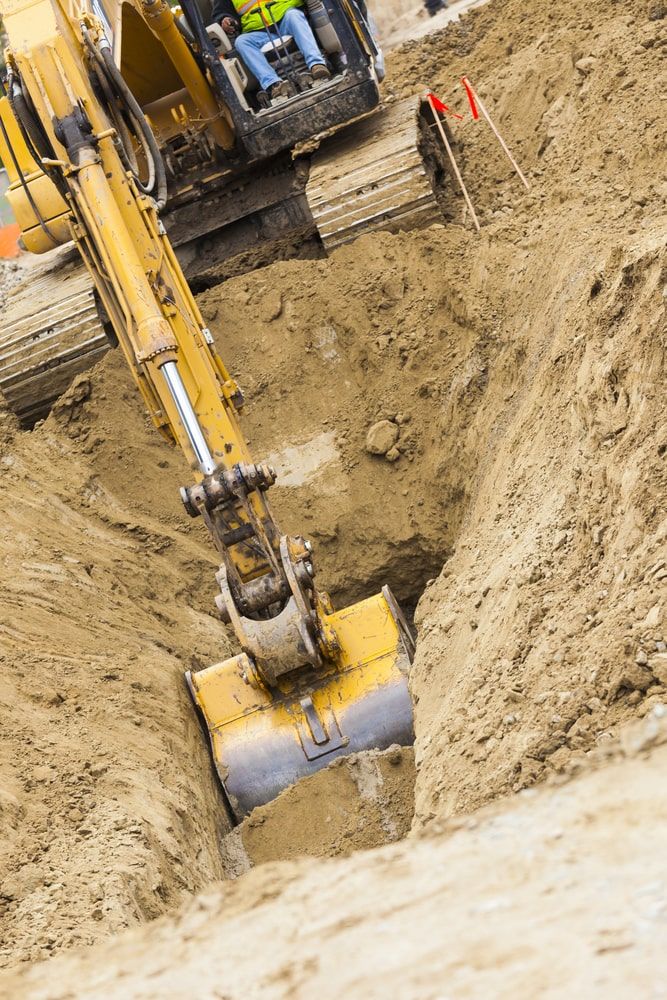Comprehensive Excavation Methods: Grasping the Basics for Success
The mindful preparation, precise implementation, and thorough interest to detail needed in excavation tasks require an extensive method that incorporates numerous fundamental elements. The real mastery exists not simply in comprehending these basics however in effortlessly incorporating them to navigate the complexities of excavation tasks with skill.
Understanding Excavation Task Planning

Successful excavation jobs are improved the foundation of thorough and thorough preparation. The preliminary stage of any kind of excavation project is the drawing board, where important decisions are made that can considerably impact the result of the project. Throughout this stage, it is important to gather all appropriate information concerning the site, consisting of topographical surveys, dirt make-up, and any possible risks that may exist. Comprehending the project timeline, budget, and scope restrictions is essential for creating a detailed excavation strategy that guarantees the task's success.
One trick element of excavation job planning is the development of a detailed timeline that outlines the sequence of milestones, target dates, and tasks. This timeline acts as a roadmap for the job team, permitting them to track progress and make necessary changes to ensure the job remains on schedule. Additionally, a distinct budget that accounts for all expenses, including devices service, labor costs, and products, is vital for avoiding cost overruns and hold-ups. By meticulously taking into consideration all these variables during the preparation stage, excavation tasks can be performed efficiently and effectively, resulting in effective results.
Soil Analysis and Site Analysis
Carrying out comprehensive dirt analysis and site evaluation is an important action in the prep work phase of any excavation task. Soil analysis entails identifying the make-up, framework, and buildings of the soil at the excavation site. This information is important for recognizing the soil's bearing ability, moisture content, and capacity for erosion, which are crucial factors in figuring out the excavation approaches and tools needed for the task.
Website assessment surpasses soil evaluation and includes a broader evaluation of the total website problems. This assessment consists of identifying any kind of potential threats, such as below ground utilities, ecological issues, or unpredictable surface, that might influence the excavation procedure. By completely assessing the website, job supervisors can create efficient excavation strategies that prioritize security, efficiency, and environmental management.
Making use of sophisticated innovations like ground-penetrating radar, soil tasting, and drone surveys can boost the precision and effectiveness of soil evaluation and site analysis. Investing time and sources in these initial actions can ultimately conserve time and prevent expensive delays or issues throughout the excavation process.
Tools Selection and Utilization
Effective excavation projects depend heavily on tactical equipment option and utilization to guarantee ideal performance and efficiency. Picking the right tools for the job is important in taking full advantage of performance and minimizing downtime. Variables such as the kind of dirt, deepness of excavation, and task range play a significant function in figuring out the most suitable tools for the job at hand.

Along with choosing the ideal devices, correct utilization is vital to task success. Operators needs to be trained to take care of the devices safely and efficiently - excavating ohio. Regular maintenance checks and timely repair work help stop failures and make sure consistent efficiency throughout the job
Precaution and Rules Conformity
In the world of excavation projects, focusing on precaution and compliance with regulations is extremely important to making certain a safe and legitimately audio operational atmosphere. Security measures incorporate a variety of practices, including conducting detailed site assessments, carrying out proper signage and barriers, and offering sufficient safety training for all personnel entailed in the excavation procedure. Adherence to regulations, such as OSHA demands in the United States, makes certain that the excavation project fulfills the essential criteria to safeguard workers, onlookers, and the surrounding setting.

Monitoring Development and Adjusting Strategies
How can predict supervisors efficiently track the improvement of excavation jobs and adapt their strategies appropriately to enhance results? Monitoring progress is necessary for ensuring that excavation jobs remain on track and meet deadlines. Project supervisors can utilize various tools and methods to track progression, such as daily report card, regular site assessments, and advanced monitoring technologies like drones and GPS tracking systems. By continually checking the job's advancement, managers can determine any possible delays or concerns early and take positive procedures to address them.

Conclusion
In final thought, mastering the principles of comprehensive excavation techniques is essential for the success of any kind of task. By understanding task planning, assessing dirt and website conditions, picking appropriate tools, abiding with safety and security laws, and monitoring progression, job visit their website managers can ensure a smooth and reliable excavation procedure. Applying these methods will bring about successful end results and decrease potential threats or problems during the excavation job.
The initial phase of any kind of excavation project is the planning stage, where crucial decisions are made that can substantially influence the result of the project. Recognizing the job timeline, scope, and budget plan restrictions is critical for producing a thorough excavation plan that makes certain the job's success.
How can predict supervisors effectively track the advancement of excavation jobs and adapt their methods accordingly to enhance results? By carefully keeping an eye on development and being ready to adapt approaches, task supervisors can enhance the overall success of excavation projects.
By comprehending task planning, assessing soil and site conditions, choosing suitable tools, weblink conforming with security regulations, and checking development, job managers can make certain a effective and smooth excavation procedure.